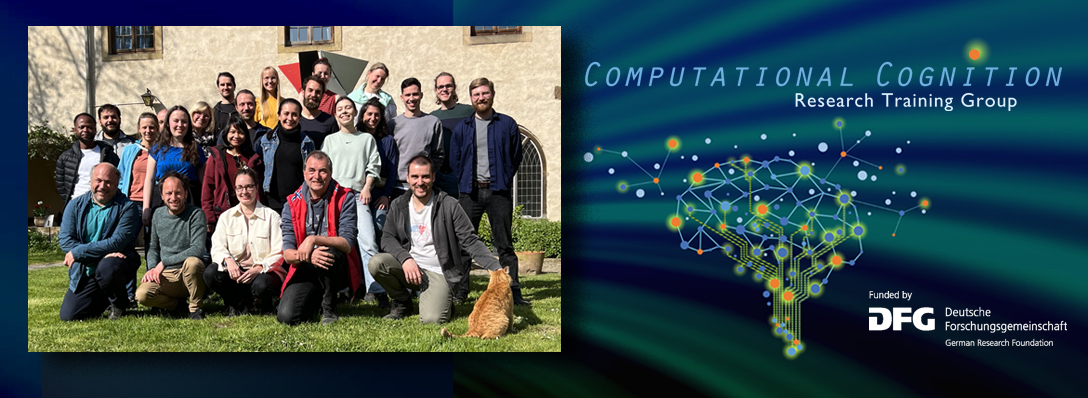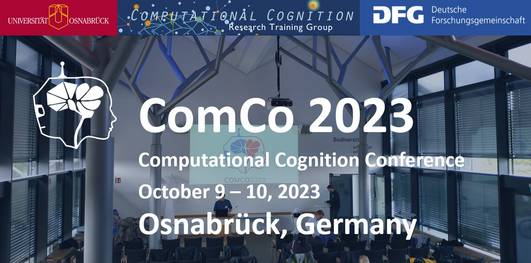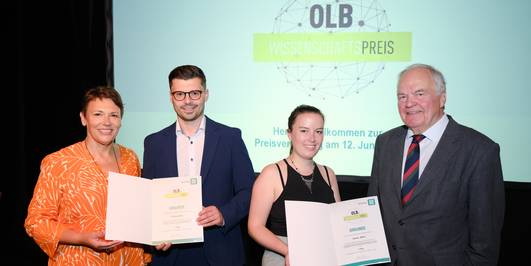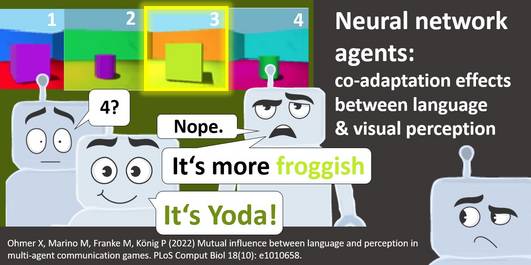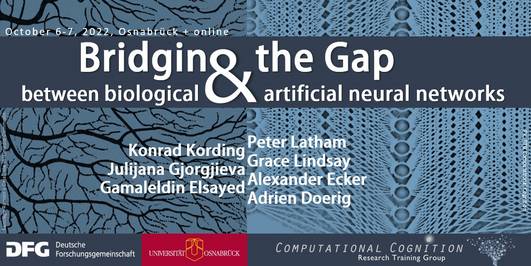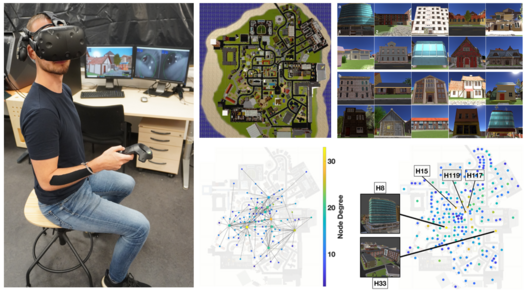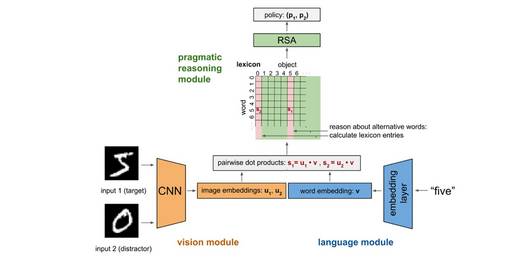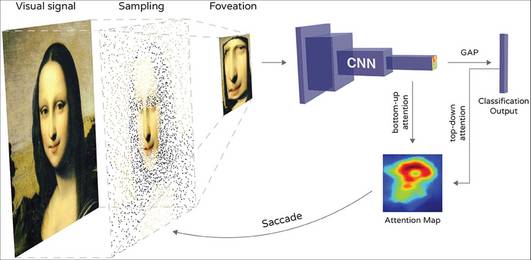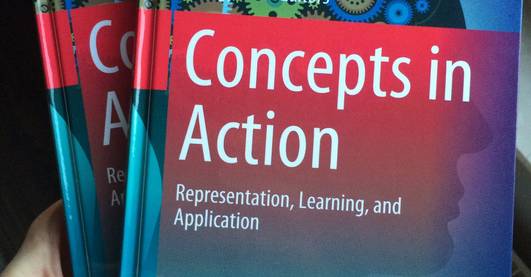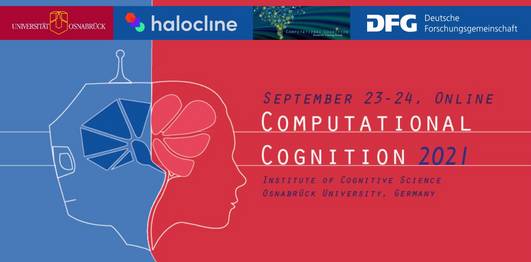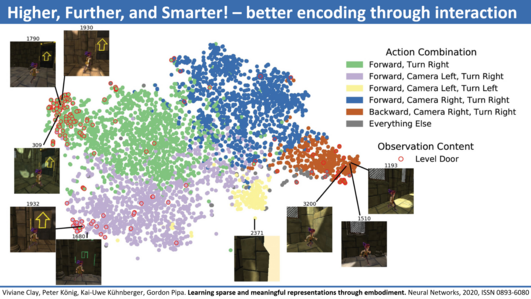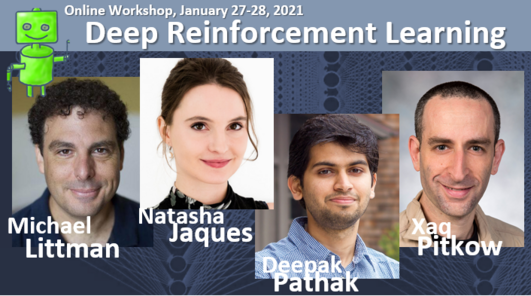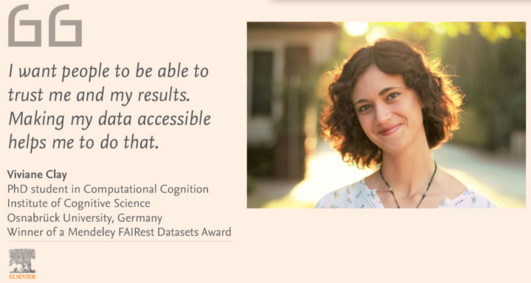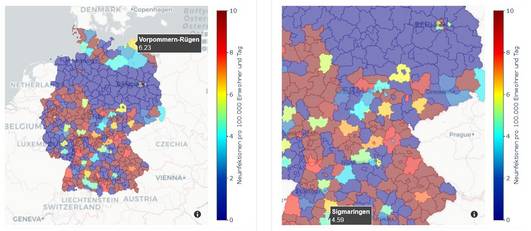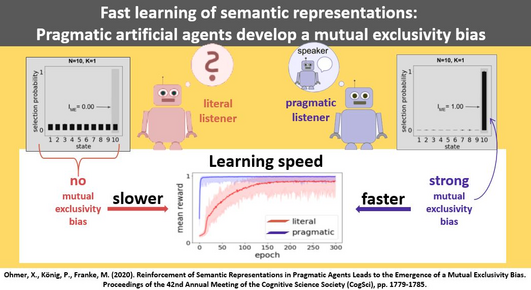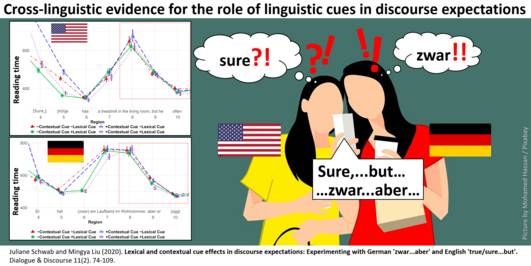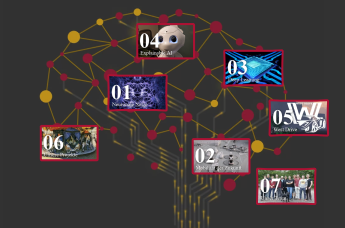Weiterführende Informationen
Top content
Let's ComCo again!
This year’s ComCo Conference with a main focus on computational models of higher-level cognition will take place on 9th and 10th October 2023 in Osnabrück. With an exciting mix of invited keynote speakers and contributed short talks and posters, we aim to foster collaborations and stimulate new research in the area of Computational Cognition. More information can be found on the conference website.
Jasmin L. Walter was awarded the OLB Science Prize
Great recognition for our doctoral student Jasmin L. Walter: she was awarded first prize in the coveted OLB Science Prize (OLB Wissenschaftspreis) for her master's thesis. The jury's laudatory speech highlighted the special scientific quality, the innovative approach and the relevance for research. Congratulations Jasmine! How good that your doctoral topic is linked to this!
How artificial agents can learn from communication games
New publication on how language-perception interactions can be studied with deep learning methods. In this study Xenia Ohmer and Michael Marino use communication games with neural network agents to model co-adaptation effects between language and visual perception. The results point out ways to modulate and improve visual representation learning and emergent communication in artificial agents. Recently published in PLOS computational biology.
Workshop on biological and artificial neural networks
This workshop organized by Viktoria Zemliak & Yusuf Brima brings together experts from diverse but intersecting fields pursuing research in understanding the mechanisms that give rise to intelligence in biological and artificial systems. We will discuss how neurons in the brain and the artificial neural networks transmit information, what advantages and disadvantages those biological and artificial networks have, discuss to what extent AI needs to be biologically plausible.
The workshop takes place on October 6-7, 2022, in Osnabrück. Some of the speakers will join online. Online attendance for the participants will also be possible.
A new approach to analyze visual behavior during spatial navigation using graph theory
To better understand how we are able to navigate and orient ourselves in a new environment, it is important to study our behavior during the process of spatial navigation. Here, Jasmin L. Walter et al. conducted a VR experiment combined with eye tracking where participants were freely exploring a virtual city. To analyze the eye tracking data the authors developed a new methodology using graph theory. This study published in PLOS Computational Biology provides a new and unique insight into behavioral data of visual attention processes during spatial navigation and opens the door for a novel approach to investigate spatial navigation.
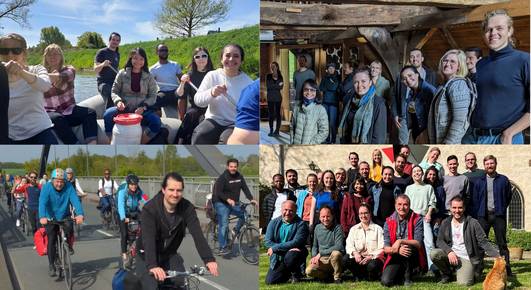
Retreat 2022 - a mix of science, sport, culture, a lot of fun, a duck, & a cat :)
In May we finally went for our long-awaited 3-day retreat. While the majority went by bike, Julius came along running (24 km!). We stayed at Kloster Malgarten, a former monastery, where we enjoyed the amazing surroundings, having all sessions outside. As a team building event we went on a boat trip with two boats on the Hase - which proved to be quite challenging and competitive. The evening barbecue was then the perfect closing. All in all, it was a terrific research group retreat - without any research presentations - but a lot of fabulous discussions providing a taste of good things to come!
Human word learning goes machine learning
Word learning is a difficult task because words are typically uttered in a context with many potential referents. Children's behavior indicates that they use certain mechanisms to reduce ambiguity in word learning. One of these mechanisms is the mutual exclusivity (ME) bias: children tend to associate novel words with novel referents rather than familiar ones. One prominent explanation of this phenomenon relies on pragmatic reasoning: the child reasons that the speaker could use a familiar word when trying to refer to a known object, which means that a novel word should refer to a novel object. Here, Xenia Ohmer et al built a computational model to capture this pragmatic reasoning process, combining probabilistic models from linguistics with machine learning methods. The authors simulated a long-term learning process of many novel words, and studied the strength and development of the agents' ME bias. They found parallels between the model and human word learning: 1) the agents display an ME bias, 2) the ME bias becomes stronger as the agents learn more words, and 3) the ME bias is stronger when the agents are frequently exposed to the words in their vocabulary. An extension of this model shows, that a pragmatic reasoning approach could also improve current machine learning models.
New deep learning vision model
New publication by H. Lukanov et al. in Front. Comput. Neurosci. The authors propose a new deep learning vision model inspired by the structural organization of the primate retina. The information reduction provided by the foveation technique allows for an energy efficient way to perceive a visual scene and acquire detailed information incrementally. Parts of the observed scene can be explored with high resolution, while the agent retains a large field of view in low resolution. Moreover, the authors provide an easy to implement attention mechanism that allows for saccadic “eye movements” to be performed in order to acquire more detailed information from different parts of the scene in a sequential manner. They believe this shift in paradigm from classical machine vision can assist development of embodied active vision agents in simulated environments or in the field of cognitive robotics.
Open access book on concept research
Concepts lie at the core of human cognition, and concept research is a highly interdisciplinary field. This edited volume provides a unique, holistic picture for the understanding and for the use of concepts combining theoretical, experimental, computational, and applied approaches.
The editors Lucas Bechberger, Prof. Kai-Uwe Kühnberger (both from the Institute of Cognitive Science) and Prof. Mingya Liu (HU Berlin) invited leading researchers from a wide range of fields including cognitive science, linguistics, philosophy, psychology, artificial intelligence, and computer science. A lot of thanks to the DFG who made this open access publication possible!
Workshop on Computational Cognition
The COMCO workshops bring together experts studying the mind from a computational point of view for a better understanding of human and machine intelligence. Besides featuring top-class scientific talks and panel discussions this workshop also offers the opportunity to networking. Participants can present their latest research projects for a talk/ poster session.
This year's workshop took place online, on September 23 – 24. Check out the recorded talks here.
Organized by: Juliane Schwab, Michael Marino & Xenia Ohmer
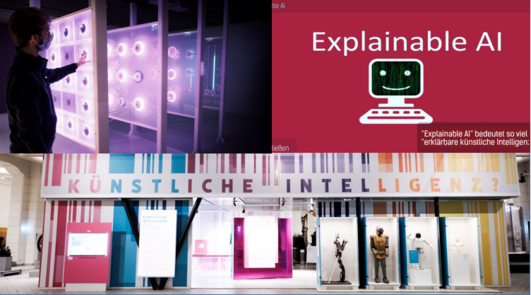
Technisches Museum Wien is showing two of our explainer videos on AI
What is deep learning? Why do we need self-explaining neural networks? Two explainer videos that we originally made for the science exhibition ship "MS Wissenschaft" in 2019 will be presented beginning with December 2020 in the Technisches Museum Wien, Austria.
Higher, Further, and Smarter! – better encoding through interaction
New publication! How can agents develop an internal representation of the world with little or no rewards from the external environment – as it is in the case of humans? In her PhD project, Viviane Clay investigates how to teach a machine a semantic world understanding in a largely unsupervised fashion. For this she uses deep reinforcement learning testing the theory of embodiment. First results show the strength of embodied learning and its advantages over fully supervised approaches with regards to robustness and generalizability. Now published in Neural Networks.
Deep Reinforcement Learning Workshop
The online-workshop comprises of a crash course and talk-sessions with invited speakers including panel discussions. The crash course aims to provide the participants with essential knowledge on deep reinforcement learning in order to understand the special features and advantages. It is designed as an interactive course. On the second day there will be talks and panel discussions with international speakers who work on highly relevant projects in that field.
Organized by: Viviane Clay & Ashima Keshava
YouTube live stream of the talks & panel discussions
Interview with Viviane Clay, winner of the Mendeley Data FAIRest Datasets Award
Open access datasets are absolutely essential for the researcher ecosystem for two reasons: „The first is for collaboration and moving the field forward together in a more efficient way. And the second is all about responsibility and accountability“ explains Viviane Clay who has won the Mendeley Data FAIRest Datasets Award as an important recognition for publishing data and analysis scripts in a reusable way. The whole interview is to be found on Elsevier Connect News.
Coronavirus forecasts: joint project with the Jülich Supercomputing Centre
Neuroinformatics scientists at Osnabrück University and data specialists at Forschungszentrum Jülich are releasing new model results daily to forecast COVID-19 infections. The results include estimates updated daily of the reported new infections and a 5-day forecast for every German district, and are available here. The predictions are based on data from the Robert Koch Institute, which are statistically analysed using a new model weighted by probability that was developed by Osnabrück's neuroinformatics scientists on high-performance computers at the Jülich Supercomputing Centre (JSC).
Lifehack for AI: Faster word learning similar to the kids
How can artificial agents learn semantic representations faster, without
being told every word explicitly? Wouldn’t it be good if they were able to use
similar "lifehacks" as toddlers to learn new vocabulary? Our PHD student Xenia Ohmer developed a computational model of the „Mutual Exclusivity Bias“
(quickly rule out unlikely alternatives in order to effectively process and
learn word meanings) and by using reinforcement learning she trained
artificial agents to learn semantic representations faster.
Which linguistic cues improve discourse processing?
Linguistic cues are words that help to structure sentences to generate discourse expectations. There are many different types and less is known about the quality of their facilitative effects and whether the effects interact with one another. In a now published study our PHD student Juliane Schwab compared two types of cues (lexical and contextual discourse cues) in German and English for a cross-linguistic assessment of expectation-based effects in discourse processing. Understanding the role of such linguistic cues is essential to improve natural language communication between human and artificial agents.
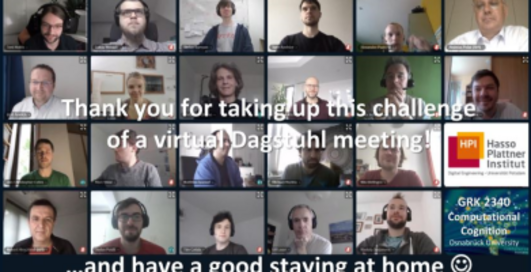
Braving Covid-19: annual meeting of the German Research Training Groups in Computer Science
This year was our turn to organize the annual meeting of the German Research Training Groups which is traditionally hold in Dagstuhl. Due to Covid-19 we had to make it to an online event. Together with the Hasso Plattner Institute (Potsdam) we found an alternative online format that worked well for more than 50 participants.
Videos explaining neural networks, ML & co.
What is deep learning? Why do we need self explaining neural networks ? Check out these videos - they were part of our exhibit on the science exhibition ship MS Wissenschaft that presented research on Artificial Intelligence in Germany and was funded by the federal ministry of education and research (BMBF)

